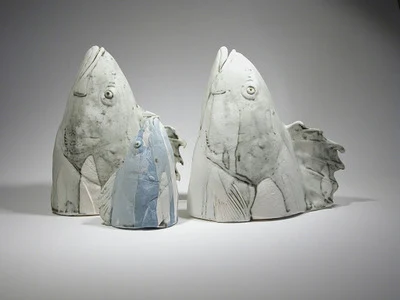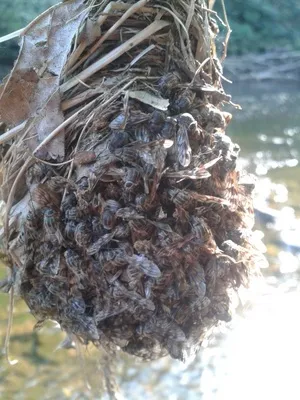Fiona Bates and Jan Sears will be celebrating 10 years of North Devon's Biosphere Reserve by focusing on our beautiful coastline and what the tide reveals. Fiona Bates has been working with clay for over 25 years and is recognised for her unique and unusual designs. She works from her ceramics studio in North Devon where her work is influenced by the sea and the chance objects that it offers up. Each of her unique pieces is hand built using pure white earthenware or porcelain clays. Pieces are finished in a range of dry glazes, slips and sumptuous gloss glazes. Fiona's work ranges in size and complexity and includes: fireplace surrounds; a variety of species of fish; boats; tiny children’s shoes; wedding shoes; tins of sardines; horses; rams, dogs and cats heads. Her work has been featured in Design Magazine, Votre Maison, The Sunday Times and Homes and Gardens. She has exhibited in many galleries including; the V&A and Crafts Council Gallery London. Jan Sears is looking forward to showing her new work for the first time in this show at St Anne’s "I am happiest when painting, mixing colours and choosing which part of our beautiful coastline to inspire me each day. I have a small studio in my garden with glimpses of the sea; it’s the ideal lifestyle really. Since moving to North Devon seven years ago I have been captivated by the changing seascapes and huge skies. The rushing clouds and tides give me all the inspiration I need.”, “Over the years I have experimented with various art forms, including textiles, drawing, painting and pottery. These skills are incorporated in my latest pictures. I have started to work in a more abstract way and my work feels less constrained as a result. This is the first time this collection has been shown so I’m looking forward to hearing visitor’s comments.”
 |
| Work by Jan Sears |
 |
| Work by Fiona Bates |
A mixed media art exhibition of work by
Fiona Bates and Jan Sears inspired by the North Devon Biosphere coast and sea. Open to the public from Tuesday 13 August to Saturday 24 August 2013. 10am - 4pm Monday to Saturday at St
Anne’s Arts Centre, Paternoster Row, Barnstaple.
Free admission.



